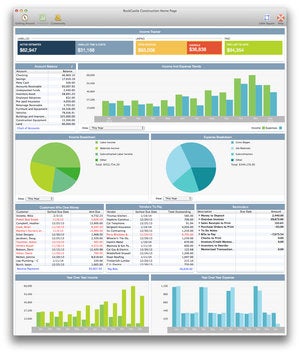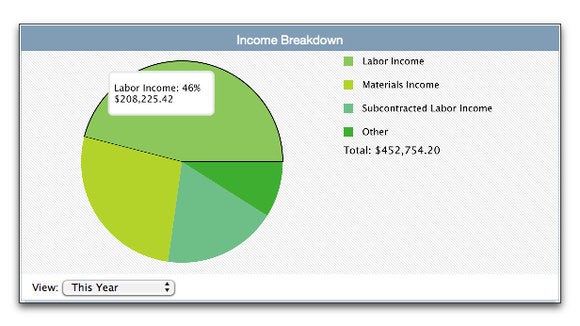Lynn Ebel for H & R Block writes: The Tax Code has been around 100 years and spans nearly 74,000 pages. Although there are many nuances to consider, there are also several overarching rules every taxpayer should know. While the IRS Commissioner isn’t Moses, we will think of these rules as the 10 Tax Commandments.
1. Your income shall be taxed when received.
Most people are “cash-basis” taxpayers. Under the cash-basis method, taxpayers must include, in their gross income, all items of income that are actually or constructively received during the tax year. For example, if you actually received advance rental income for the next five years in this year, it is all taxable now. Or, if your boss allows you to pick up a check on December 31 of this year, it will be still be reported as taxable on your
W-2 for 2013. You constructively received this income in 2013 even if you don’t actually cash the check until January 2014.
2. You shall not deduct what you don’t pay.
One myth many people believe is that someone ought to get an itemized deduction for an expense they did not pay. On a jointly-owned property, the taxpayers get to pick which person takes the mortgage and real estate deductions on their personal returns, right? Wrong. If you didn’t pay it, you generally can’t deduct it.
3. You shall honor the last day of the year.
December 31 is an important day for your taxes. Midnight on this day establishes your marital status, which your tax return filing status is based on. You could be unmarried for almost all of 2013 but, if you get hitched on the last day, you could file Married Filing Jointly with your spouse for the whole of 2013.
This day is your very last day to make changes to your return that impact the tax year. Prepaying January expenses (such as Spring tuition or making a mortgage payment) before the end of the year may be beneficial to your 2013 taxes.
December 31 is the also cutoff for many age-sensitive rules. For example, under the Affordable Care Act (ACA), a health insurance plan that provides coverage for a taxpayer’s dependent children is required to continue to offer the coverage to the taxpayer’s adult children who are less than 26 years old as of the last day of the year. Additionally, the qualifying child age test for claiming a dependency exemption (under 19 or under 24 and a full-time student or disabled) is also established on the last day of the year.
4. You shall file timely or you may be punished.
Due to the government shutdown, tax season will begin Jan. 31. But this does not give you additional time to file your taxes. The April 15 deadline is established by law and remains fixed. Interest will accrue on a tax balance due after the April 15 deadline, and there are penalties that could apply.
The IRS charges interest on unpaid tax from the due date of the return until the date of payment, even if you were granted an extension of time to file your return.
If you don’t file timely, the IRS may assess a late filing penalty (also referred to as a failure to file penalty). The penalty is equal to 5% of the balance due on the return, per month (or part of a month), up to a maximum of 25%.
But interest and the failure to file penalty are not the only punishments. A late payment penalty will be applied if you fail to timely pay the balance of tax due reported on the original return by the due date. The penalty rate is 1/2 of 1% per month (or part of a month), up to a maximum of 25% of the tax due.
Basically, if you will owe taxes on your 2013 return, you will want to pay your taxes by April 15 to avoid penalties and interest, even if you file for an extension. The best advice to avoid penalties and interest altogether is to file timely, and, if you owe, pay as quickly as possible.
5. You shall honor past years’ returns.
Do not depend on the IRS to keep copies of your tax returns for you. To get an exact copy of one previously filed return you will need to pay $50 and the IRS will take 75 days to process your request. Even if you can wait that long and pay that much, you are limited to the last 7 years before the IRS is required by law to destroy your returns.
This means these records are your responsibility. Records such as receipts, canceled checks, and other documents that prove an item of income or a deduction appearing on your tax return should also be kept at least until the statute of limitations expires for that return (generally three years from the date the return was filed).
But some records should be kept indefinitely, such as property records, since they may be needed to prove your basis in the property and determine the amount of gain or loss if your property is sold. You may be kicking yourself later for overzealously cleaning out a filing cabinet if there is an IRS letter in the mail next year with your name on it.
6. You shall not ignore the signature line.
This one seems to be self-explanatory. However, your tax return is not a valid one unless you declare under penalties of perjury that you have examined the return and accompanying schedules and statements, and, to the best of your knowledge and belief, they are all true, correct, and complete. The way you do that is to sign it.
If you don’t sign your return, you have not filed a valid return for that year in the eyes of the IRS. In the absence of a valid return, the statute of limitations never starts to run, and the IRS may audit that return at any time. In addition, you could be subject to the failure to file penalty discussed above. Note: If you e-file, there is a way for you electronically sign your return to make the declaration under penalties of perjury without physically signing your tax return.
7. You shall take credit only when credit is due.
The biggest tax credit is generally the
earned income credit (EIC). If you have the right adjusted gross income, three or more children, the right filing status, and meet certain requirements, this could mean a check from the IRS in the amount of $6,044.
But the “certain requirements” are super important and won’t apply to all taxpayers who think that they qualify. If the IRS determines that your EIC claim was due to reckless or intentional disregard of the EIC rules, you won’t be able to claim this credit for the next two years, even if you do qualify in those years. If the IRS determines your claim was due to fraud, those two years without the EIC become ten. Of course, interest and penalties could also apply to the incorrectly claimed tax credit. Diligently review the EIC rules in
IRS Publication 596.
8. You shall not ignore income.
The United States is one of the two countries in the world to tax by citizenship, not by residence. If you are a U.S. citizen or resident, all of your world-wide income may be taxable on a U.S. tax return, even if it was earned abroad or you didn’t receive a reporting document for it. If you did receive a reporting document, the easiest and fastest way for the IRS to have your return flagged for audit is to have the machines run a comparison of your tax return with third party reporting documents, such as Forms 1099, and find something is missing.
9. Not all income is taxed equally.
Tax rates could depend upon the type of income, your filing status, how long you owned the property you sold, and how much total income you have. The U.S. income tax is a graduated tax, designed so that individuals pay an increasing rate as their income rises through progressive tax brackets. There are seven tax brackets for ordinary income like wages: these different brackets impose taxes at rates of 10%, 15%, 25%, 28%, 33%, 35%, and 39.6%. The 39.6% tax bracket is new this year.
But capital gain tax rates (for gain on the sale of property such as stocks or your home) depend on whether they are long term or short term. If owned long term (usually one year or longer), there are different rates that apply rather than the seven tax brackets above. In fact, there are only three brackets, depending upon your total income: 0%, 15%, and 20%.
Collectibles, such as antiques or a work of art, could have a maximum tax rate of 28%. Additionally in 2013, there begins a new, additional 3.8% Medicare tax on certain types of income for high-income taxpayers.
10. There is opportunity for forgiveness.
Most people choose assistance from a tax preparer for help in complying with all the rules in filing their returns. But if you discover you made a mistake, such as some of the common tax sins mentioned above, it can probably be corrected with an amended return, which is filed using Form 1040X. Talk to a tax advisor about your specific needs.

